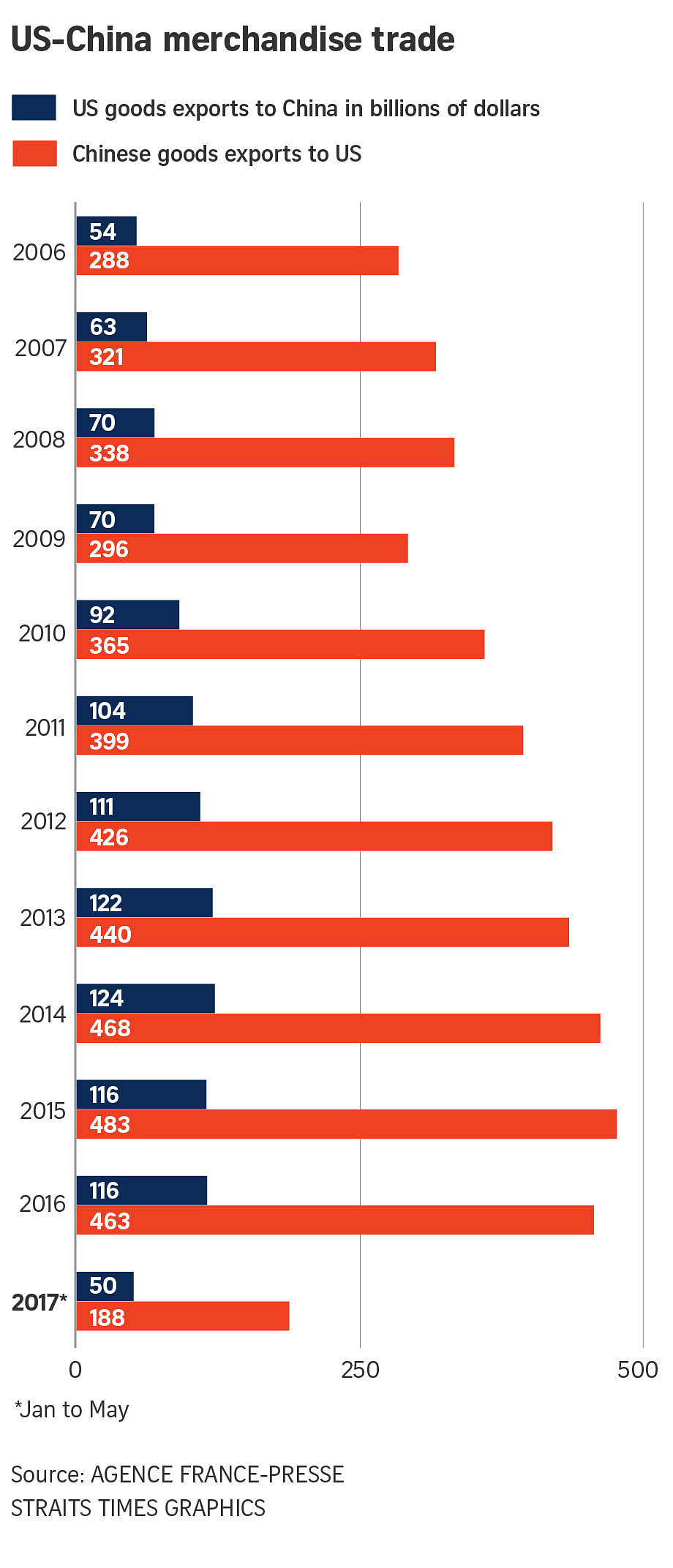Top Chinese economic and trade officials will meet their US counterparts in Washington today in the wake of US$5 billion (S$6.8 billion) worth of deals to import American beef and soya bean, and a strong signal from President Xi Jinping on further opening of the Chinese market.
But while President Donald Trump has celebrated the agricultural product deals which directly benefit his political base, he has threatened anti-dumping action on another issue - Chinese steel.
The meeting, to be chaired by China's Vice-Premier Wang Yang, and US Secretary of the Treasury Steven Mnuchin and Secretary of Commerce Wilbur Ross, will thus still be dealing with prickly issues and the US will be looking for concessions from China, analysts say.
The US-China Comprehensive Economic Dialogue meeting comes soon after the expiry last Saturday of a 100-day trade plan aimed at reducing the US trade deficit with China, which stood at US$347 billion last year - a gap President Trump has insisted must be narrowed.
President Xi appeared to address the issue when he told the 16th meeting of the Central Leading Group on Financial and Economic Affairs on Monday that China should reform the corporate environment and open its market further. He said China should increase imports and "stabilise" exports, as well as overhaul or abolish laws restricting entry into its market, Chinese media reported.
Among the sectors he mentioned was e-commerce - where American corporations want access.
Dr Zhang Zhixin, head of American Political Studies at the Institute of American Studies, China Institutes of Contemporary International Relations, wrote in a piece published by China Daily yesterday that the Washington meeting "will likely facilitate negotiations on agricultural exchanges, financial services, investment and energy, all key areas of the 100-Day Action Plan, which is proving to be more constructive and fruitful than some sceptics were ready to accept".

"Flagship deals inked under the framework of the action plan have helped both countries avert a possible trade war and restore their faith in trade cooperation," he wrote.
The import of beef - until recently banned by China - is a case in point. Last month, Nebraska Governor Pete Ricketts saw off the first shipment of US beef in 14 years to a buyer in Shanghai, telling China Daily: "This is a big deal for us."
Last week, Chinese buyers signed up to buy US$4.5 billion worth of soya bean from Iowa, a state Mr Trump won last year by a wide margin. "They basically bought the entire production that we have in the state," said farmer April Hemmes.
But while early gains for the US - and for China exporting Chinese poultry to the US - have materialised, these are "far from being meaningful enough and the American complaints on steel and aluminium have been very vocal," Ms Yun Sun, a fellow at the Stimson Centre in Washington DC, told The Straits Times.
Last week, Mr Trump told reporters: "They're dumping steel and destroying our steel industry. They've been doing it for decades, and I'm stopping it."
The US President had also linked trade negotiations with China's efforts to make North Korea give up its nuclear missile programme.
"Given how dissatisfied the administration is with China on the North Korea front, there is more pressure on trade," said Ms Yun Sun. "If the Chinese are indeed concerned about the shape of US-China relations, we might see more deliverables from the Economic Dialogue."

